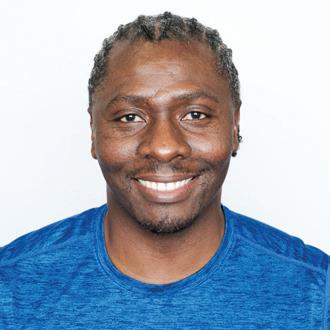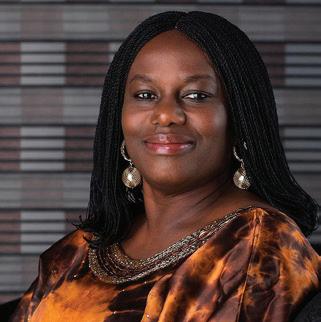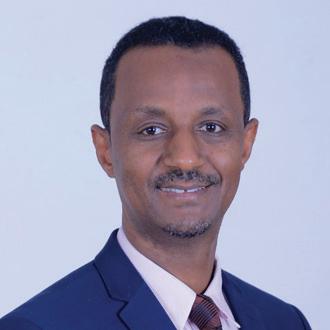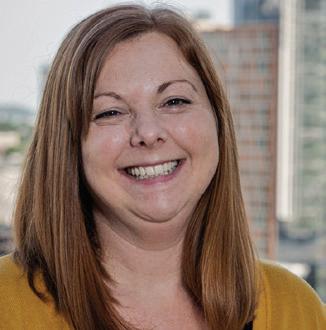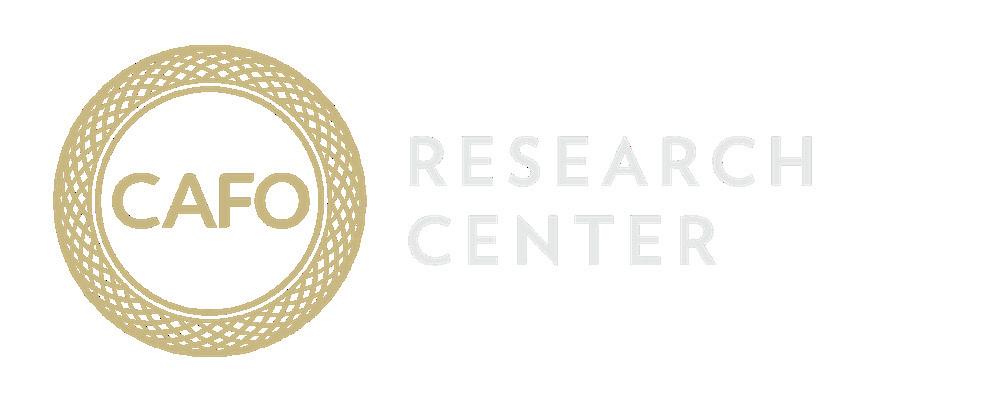OVC
Applied Research & Best Practice
Connecting Research and Practice


What is Working to Strengthen Families
in Adversity?
September 2023

Table of Contents

am
Table Introductions
8:45 am Research Presentations
Adapting Family Strengthening Programs to Fit Your Context - Dr. Sarah Elizabeth Neville
TABLE TALK
Strengthening Care for Children: What Families Can Learn from the Positive Mental Health Practices of Caregivers - Ms. Blen Biru
TABLE TALK
Making Sense of Your Worth - Ms. Cindy R. Lee
TABLE TALK
Restore: A Biblically Integrated Savings Group Ministry for Relational Healing and Household Economic Strengthening in Global SettingsDr. Susan Greener
TABLE TALK 9:55 am
Sessions
am
Round - Promising Practice Presentations
ICAR Presentation - Dr. Dana Johnson
11:30 am Lunch & Break 12:25 pm
Research Presentations
Solid Ground for All Families - Dr. Delia Pop
TABLE TALK
Strengthening Families in Crisis: Lessons from Rapid Unprepared Return - Dr. Mandy Hiles Howard
TABLE TALK
Core Components of Family Strengthening SuccessDr. Nicole Wilke
TABLE TALK
Presenters
 Sarah Elizabeth Neville, Ph.D Postdoctoral Research Fellow
Sarah Elizabeth Neville, Ph.D Postdoctoral Research Fellow
 BROWN UNIVERSITY SCHOOL OF PUBLIC HEALTH BROWN DEPARTMENT OF PSYCHIATRY & HUMAN BEHAVIOR
BROWN UNIVERSITY SCHOOL OF PUBLIC HEALTH BROWN DEPARTMENT OF PSYCHIATRY & HUMAN BEHAVIOR
Dr. Neville is a Postdoctoral Research Fellow at Brown University School of Public Health and the Brown Department of Psychiatry and Human Behavior. She obtained her Ph.D. from Boston College School of Social Work in 2022, where she conducted her dissertation on children reunifying with family after living in residential care institutions in Kenya. Sarah‘s research is on children and residential care in low- and middle-income countries, including strategies for enabling children in institutions to live in safe and nurturing families, preventing them from entering institutions, and enhancing their mental health and well-being. Sarah received her BA and MA in Child Development from Tufts University.
Adapting Family Strengthening Programs to Fit Your Context
What exactly is Family Strengthening, and how can we use it for those we serve? Family Strengthening is key for preventing family separation and for ensuring placement stability. However, there is no one-size-fits-all approach and no one program that will work for everyone. How can we design a family-strengthening process that will work for those we serve? How can we learn from what works in other contexts and adapt it to ours? How can practitioners use data and/or local wisdom to make sure family-strengthening programs fit their families’ unique needs? This session will grapple with these questions and more related to adapting familystrengthening practices and programs.
 CENTER FOR HEALTH EQUITY RESEARCH, UNIVERSITY OF NORTH CAROLINA
CENTER FOR HEALTH EQUITY RESEARCH, UNIVERSITY OF NORTH CAROLINA
Ms. Biru is a Research Program Manager at the University of North Carolina Center for Health Equity Research. She earned her bachelor’s degree from Mount Holyoke College and her Master of Science from the Duke Global Health Institute. While at Duke, she contributed to research projects on the well-being of orphaned and vulnerable children and their caregivers in four low- and middle-income countries: Ethiopia, Kenya, India, and Cambodia. She conducted interviews with caregivers in Ethiopia, her country of origin, and analyzed data across the four countries to complete a thesis on the virtues and characteristics of successful and enduring caregivers.
Strengthening Care for Children: What Families Can Learn from the Positive Mental Health Practices of Caregivers
Whether biological family members or non-biological supporters, caregivers tremendously impact children’s well-being. In this presentation, we share findings from a four-country (Ethiopia, Kenya, India, and Cambodia) study of caregivers in residential settings that identified desired characteristics and virtues of caregivers and determined six strategies that can be used in adverse situations to sustain caregivers in providing the best care to children. We propose that these findings not only apply in residential settings but also inform family-strengthening practices that biological family members can adopt.
Ms. Lee specializes in providing counseling services for all ages and founded HALO Project International. HALO Project provides a 10-week program for children in foster care and children who have been adopted, as well as services for at-risk families. Cindy has published a series of children’s books based on valuable lessons on Trust-Based Relational Intervention®.
Because individuals must complete a step-by-step process to obtain the “earned secure” attachment style, Cindy created an 8-week curriculum entitled Making Sense of Your Worth. Cindy also published a bible study entitled Anchored: A Bible Study on Self-Worth to help individuals increase their self-worth.

Making Sense of Your Worth
Humans all over our planet are walking around in shame and feelings of worthlessness. They do not know their value; they do not know their identity, and they do not walk in authenticity. When an individual does not know their value, they have difficulty building meaningful connections in various settings. Adverse experiences throughout life and the messages received counter to worth are the primary contributing factors to this crisis. The Making Sense of Your Worth curriculum is a step-by-step program helping professionals and those they serve to gain positive self-worth and secure attachment. Making Sense of Your Worth is being utilized by professionals in over 36 states and 16 countries and has been translated into multiple languages.
Dr. Greener is passionate about helping people discover the gifts within and around them, allowing them to grow and develop into the people God is calling them to be. A natural leader and compelling educator, Susan has shared inspiring development principles with people from over 70 countries. A former college professor (Wheaton Graduate School, Intercultural Studies), she has also served in settings as diverse as Early Head Start, Compassion, OneChild, and Yale University. She has also served as a Catalyst for the global Lausanne Movement’s Children-at-Risk Issue Group, advocating for children at risk, their families, and communities. Dr. Greener holds a Ph.D. in Human and Community Development from the University of Illinois (Urbana). She and her husband, Jay, have partnered in ministry for more than 40 years. An avid crossword puzzler, she can also usually be found hiking, spending time with family, or in the middle of a good mystery novel. Susan and Jay delight in their three adult children, daughters-in-law, and four grandchildren.
RESTORE: A Biblically Integrated Savings Group Ministry for Relational Healing and Household Economic Strengthening in Global Settings
How might ministries respond when extreme economic hardship puts families in danger of separation or giving a child over to institutional care? Rigorous research indicates that impoverished households are able to save money through informal financial services, such as savings group ministries, resulting in positive and holistic benefits for household members, including children. RESTORE integrates principles for restored relationships with savings group best practices to strengthen household economics, supporting family-based care.

Dr. Pop, a passionate children’s rights advocate, has 20+ years of experience in child protection system reform across 30+ countries. With a successful track record in scaling change and increasing investment in children and families, she’s an established strategic adviser and is a soughtafter speaker. A co-author of multiple publications on deinstitutionalization and care reform, her recent collaboration is “Beyond Institutional Care, A Roadmap for Care Reform” with UNICEF Latin America. Delia directs Tanya’s Dream Fund, an initiative ensuring Bulgarian children grow up in families with access to essential services.

Solid Ground for All Families
Each and every child needs the same things to thrive: a safe and stimulating home and stable, caring relationships. With the right support, most families can and should stay together - so that all children can benefit from the care and support that families provide.
Too many children are unnecessarily separated from their families every day. Children are disproportionately separated from families in poverty, where one member has a disability and in families from marginalised communities. Experiencing poverty, having a disability, or being part of a marginalized community does not in itself make families more likely to separate. But the social exclusion, discrimination, and lack of support some families are more likely to experience does. Those of us working to end unnecessary child-family separation face a series of challenges. In this presentation, we will explore targeted empowering models of family strengthening aimed at overcoming structural, cultural, and interpersonal challenges some children and families face.

Dr. Howard is an Associate Professor of Psychology at Samford University. She specializes in developmental science, action research, and social psychology. Her scholarly work focuses on understanding the effects of adversity on vulnerable children and their families and improving the quality of practice being provided by the communities, organizations, and governments that serve them. She is deeply committed to translating research into on-the-ground practice. To this end, she has done extensive speaking about care reform and improving public policy nationally and internationally.
Strengthening Families in Crisis: Lessons from Rapid Unprepared Return
During the COVID-19 pandemic, multiple governments around the world implemented directives that mandated residential care providers to rapidly reunite thousands of children and youth with their families. Limited preparation and in-person support, coupled with expedited timelines, raised concerns about long-term placement stability and family well-being. However, after two years, a significant number of families remained intact despite the challenges. This presentation explores the power of robust and tailored family-strengthening approaches in achieving positive long-term outcomes for children and families. By delving into the strategies employed and lessons learned, we highlight the potential for promoting stability and well-being in families, even amidst crisis situations.

Dr. Wilke is passionate about connecting research and practice to improve outcomes for vulnerable children and families. She has supported care improvement through her work with organizations serving in more than 100 nations worldwide. This has included leading international investigations related to care reform, resilience, and family strengthening, developing the Care Transition Accelerator Academy and OVC Applied Research & Best Practice Symposium, and authoring dozens of evidencebased courses and resources on improving care for children. Prior to her current role, Dr. Wilke gained field experience in child welfare as a therapist for foster and adoptive families, serving in residential care, working with children and families with disabilities, and engaging in cross-cultural ministry. She currently lives with her family in Peru.
Core Components of Family Strengthening Success
If we want to care for children, we must care for their families. This is a tall order, considering the diversity of needs, strengths, and contexts for the children and families we serve. Like all care for people, there is no onesize-fits-all approach to family strengthening and no family strengthening program that will work for everyone. However, there are key principles that provide the building blocks for successful family-strengthening programs. Learn about seven foundational elements to strengthen families and move towards success and sustainability in your program.
Lightning Round Presenters

Organization HOLISTIC HAITIAN ALLIANCE
“Financial Freedom for Families in Haiti” with Naomi Studtmann

Naomi Studtmann has dedicated her career to improving the lives of vulnerable populations and promoting holistic approaches to community development. She has a master’s degree in public health, with a specialization in United Nations’ Sustainable Development Goals (SDGs) from New York University (NYU). She also has a bachelor’s degree in psychology from Purdue University. Naomi applied her expertise as she oversaw program operations in Haiti with Holistic Haitian Alliance (HHA) for six years. Currently serving as the Managing Director of HHA, Naomi builds upon her extensive experience to steer the organization towards its mission of fostering sustainable development in Haiti.
Organization PROMISE 686
“A Model for Supporting Vulnerable Families” with Johnna Stein
Johnna Stein, VP of Training, has worked with Promise686 for 11 years. Her passion is to help equip the local church to rise to her potential in serving vulnerable children and families. Johnna is a TBRI Practitioner who loves kids, coffee, and underdogs. She’s an award-winning children’s writer, and she and her husband have cared for more than 30 bonus children in seven years of fostering.

Organization CASA VIVA
“Loving Those Who Are Not Easy to Love” with Andrés Villalobos Salgado
As a psychologist, husband, and father, Andrés Villalobos Salgado firmly believes in strengthening the family. Andrés has found psychology to be a tool for individuals, families, churches, and communities, to help them discover or rediscover their dignity and potential for life. Andrés has over 15 years of experience in the management of social programs for vulnerable children, youth, and families. Currently, he coordinates Casa Viva’s family reintegration program and consults orphanages on the Casa Viva Solutions team. Andrés has a Bachelor’s Degree from the University of Costa Rica. He is married and has a young son.

Organization STEP AHEAD THAILAND
“Financial Habits that Strengthen Futures for Families” with Kimberly Quinley
Kimberly Quinley has spent 39 years in Thailand working with orphans, vulnerable children, and their families. She is the Executive Director of Step Ahead Foundation: an organization committed to seeing all children in Thailand thrive in safe and nurturing families. Kimberly serves on Thai government committees drafting alternative care policy and partners with the government in a pilot project to transition children from residential care to family-based care. Kimberly strongly believes that collaboration creates a collective impact and is active in several coalitions. Kimberly and her husband, John, are former foster parents and raised four biological children (all adults now) in Thailand.

EKISA MINISTRIES
“Finding Value: Helping a Parent Find Value in their Child with Disabilities” with Liv Ricketts
Liv Ricketts is the Director of Advancement at Ekisa Ministries International in Jinja, Uganda. Ekisa works to improve the lives of children with disabilities in Uganda and focuses primarily on family permanency, filling the gaps in needed services, and ending stigma. Liv leads Ekisa’s Training and Equipping Department and is passionate about encouraging organizations worldwide to include children with disabilities in their programming and reintegration strategies. Liv holds a Bachelor’s and Master’s degree in Social Work with an emphasis in Non-Profit Management from the University of Georgia.
Organization REFUGE: ZIMBABWE
“Utilizing Child-Directed Healing Play to Strengthen Relationships and Regulation Skills” with Regina Chari

Regina Chari serves those entrusted with precious children from vulnerable communities. She and her husband, Nyasha, founded Refuge: Zimbabwe to develop and deliver programs and practices offering healing to those impacted by trauma. They have two daughters who are full of moxie. Regina holds a Bachelor of Social Work from Michigan State University and a Master of Social Work from Washington University in St. Louis. She feels honored to be present in the sacred space where someone shares their story. Her passion is helping safe adults bring healing to hurting children using the most important tool they have, their relationship.
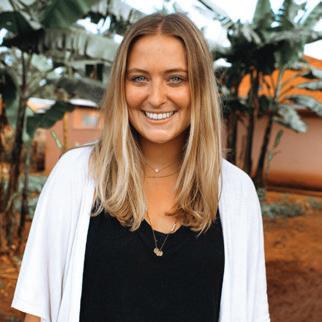
Organization IDENTITY MISSION
“Engaging Local Churches in Family Strengthening” with Nicolena Meola de Lopez
Nicolena Meola de Lopez has been passionate about working with foster kids since she was 16 years old and convinced her family to become a foster family. When she heard about Identity Mission running a foster care program in Honduras, she knew she had to be a part of it and has been for the past 6 years. Currently, Nicolena serves as the COO for Identity Mission, where she works alongside the leadership team to continuously improve and implement best practices in the organization’s daily operations. Nicolena is married to Eric Lopez, who also works at Identity Mission. As a couple, they support and strengthen at-risk families via Identity Missions family preservation program, recruit new foster families, and partner with local churches to seek family-based care solutions for at-risk kids. Nicolena is a mom to two girls, one biological and one foster daughter, and she has a baby on the way.


